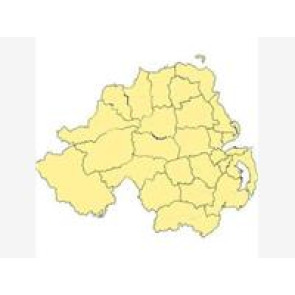NORTHERN IRELAND CASUALTIESRemembering all members of the security forces who gave their lives in the line of duty as a result of the Northern Ireland “Troubles” between 1969 and 2007.
More than 300 members of The Royal Ulster Constabulary -the police force in Northern Ireland from 1922 to 2001 - were killed during the period.
Twenty-four prison service officers and seven Territorial Army members also died.
By far the biggest casualty toll was the 763 servicemen and women killed as a direct result of terrorism during Operation Banner, which lasted from 1969-2007, according to Ministry of Defence figures.
This includes 651 Army and Royal Marine personnel; one Royal Naval serviceman; 50 members of the former Ulster Defence Regiment and later Royal Irish Regiment; 10 members of the Territorial Army and 51 military personnel who died outside Northern Ireland. A total of 6,116 members of the Army and Royal Marines were wounded over the period.
In all, 274 members and ex-members of The Ulster Defence Regiment, The Royal Irish Regiment, The Royal Irish Rangers and Royal Irish members of the Territorial Army died as a result of terrorist action in Northern Ireland between 1971 and 2002.
More than 300,000 members of the armed forces have served in the province.
During the worst period of The Troubles, between 1972 and 1973, 27,000 military personnel were stationed in Northern Ireland, with 106 military bases or locations in the province.
The process of steadily reducing military presence began on 1 August 2005.
In September 2008, Defence Secretary Des Browne paid tribute to their sacrifice, saying: "They served with the characteristic determination, selflessness and professionalism that typify our armed forces.
“In particular today we remember, with humility, gratitude and respect those who lost their lives on Operation Banner.
“The nation's debt to them and to the loved ones who survive them is immeasurable.
“Their sacrifice must never be forgotten."
The turbulent years took hold following a chequered political history in the province, where factors such as the right to vote, schooling and even council housing seemingly favoured Protestants over Catholics and led to disquiet and unrest.
In 1966, after the 50th anniversaries of both the Battle of the Somme and the Easter Rising (significant for either side of the sectarian divide) violence erupted.
Reforms failed, civil rights marches continued, and paramilitary groups had now begun to operate.
The annual Apprentice Boys' march in August 1969 led to three days of civil unrest in Belfast, the 'Battle of Bogside' only ending with the arrival of British troops. Domestic defence came under control of the British Army, which remained until the 1998 Good Friday Agreement took effect.
Keep me informed of updates





